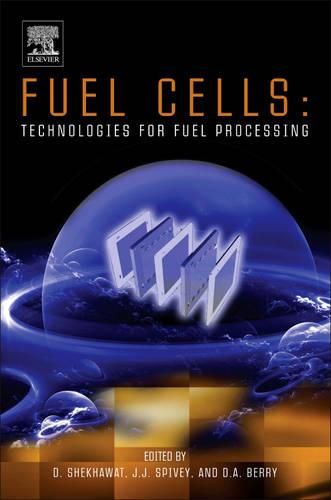Readings Newsletter
Become a Readings Member to make your shopping experience even easier.
Sign in or sign up for free!
You’re not far away from qualifying for FREE standard shipping within Australia
You’ve qualified for FREE standard shipping within Australia
The cart is loading…






Fuel Cells: Technologies for Fuel Processing provides an overview of the most important aspects of fuel reforming to the generally interested reader, researcher, technologist, teacher, student, or engineer. The topics covered include all aspects of fuel reforming: fundamental chemistry, different modes of reforming, catalysts, catalyst deactivation, fuel desulfurization, reaction engineering, novel reforming concepts, thermodynamics, heat and mass transfer issues, system design, and recent research and development. While no attempt is made to describe the fuel cell itself, there is sufficient description of the fuel cell to show how it affects the fuel reformer. By focusing on the fundamentals, this book aims to be a source of information now and in the future. By avoiding time-sensitive information/analysis (e.g., economics) it serves as a single source of information for scientists and engineers in fuel processing technology. The material is presented in such a way that this book will serve as a reference for graduate level courses, fuel cell developers, and fuel cell researchers.
$9.00 standard shipping within Australia
FREE standard shipping within Australia for orders over $100.00
Express & International shipping calculated at checkout
Fuel Cells: Technologies for Fuel Processing provides an overview of the most important aspects of fuel reforming to the generally interested reader, researcher, technologist, teacher, student, or engineer. The topics covered include all aspects of fuel reforming: fundamental chemistry, different modes of reforming, catalysts, catalyst deactivation, fuel desulfurization, reaction engineering, novel reforming concepts, thermodynamics, heat and mass transfer issues, system design, and recent research and development. While no attempt is made to describe the fuel cell itself, there is sufficient description of the fuel cell to show how it affects the fuel reformer. By focusing on the fundamentals, this book aims to be a source of information now and in the future. By avoiding time-sensitive information/analysis (e.g., economics) it serves as a single source of information for scientists and engineers in fuel processing technology. The material is presented in such a way that this book will serve as a reference for graduate level courses, fuel cell developers, and fuel cell researchers.